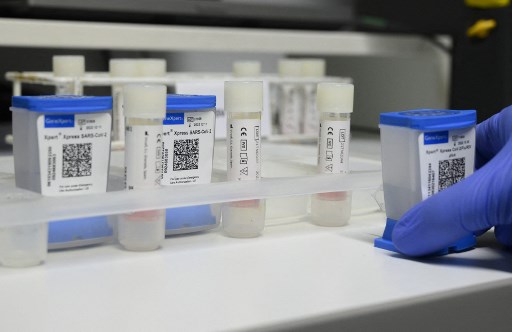
403
Sorry!!
Error! We're sorry, but the page you were looking for doesn't exist.
Sperm Banks' Lack of Diversity Leaves Women of Color with Limited Options
(MENAFN) The COVID-19 pandemic has highlighted an issue for women of color using sperm banks: the difficulty of finding donors who share their background. CBS News conducted an investigation into the four major cryo-banks in the United States, California Cryobank, Fairfax Cryobank, Seattle Sperm Bank, and Xytex, and found that over 53% of the available sperm is from White donors, while less than 4% is from Black donors. This leaves many women, such as Jamila Galloway, with a tough choice between having a child that doesn't reflect their own race and culture or not having a baby at all.
Jamila Galloway, a 40-year-old single woman, decided to use a sperm donor to have a child, hoping for a baby that looked like her. However, her options were limited when she filtered the search for donors of her own race. She described the experience as feeling like being "on a hunt." Dr. Tia Jackson-Bey, a fertility doctor in New York City, remarked that every patient of color at her practice has experienced the struggle of finding a sperm donor who shares their background. Historically, donors have been recruited from places where Black men are not present, such as certain institutions of higher learning and geographic areas in the country.
Most cryo-banks require three generations of medical family history, which not all Black Americans have access to. As a result, many Black women across the country, like Angela Stepancic, eventually give up on finding Black donors altogether. Angela Stepancic, who describes herself as half-Black and half-Croatian, welcomed a multi-racial baby girl last year with her wife via sperm donor. Initially, having a Black baby was non-negotiable for Stepancic. However, she later realized that it was a concession she had to make to have a baby.
The lack of diversity in sperm banks is a serious issue that affects many women of color. It leaves them with limited options and a difficult choice to make between having a child that reflects their own race and culture or not having a baby at all. The COVID-19 pandemic has brought this issue to light, prompting many to call for change in the cryo-bank industry. Until then, women of color will continue to face challenges in finding sperm donors who share their background.
Jamila Galloway, a 40-year-old single woman, decided to use a sperm donor to have a child, hoping for a baby that looked like her. However, her options were limited when she filtered the search for donors of her own race. She described the experience as feeling like being "on a hunt." Dr. Tia Jackson-Bey, a fertility doctor in New York City, remarked that every patient of color at her practice has experienced the struggle of finding a sperm donor who shares their background. Historically, donors have been recruited from places where Black men are not present, such as certain institutions of higher learning and geographic areas in the country.
Most cryo-banks require three generations of medical family history, which not all Black Americans have access to. As a result, many Black women across the country, like Angela Stepancic, eventually give up on finding Black donors altogether. Angela Stepancic, who describes herself as half-Black and half-Croatian, welcomed a multi-racial baby girl last year with her wife via sperm donor. Initially, having a Black baby was non-negotiable for Stepancic. However, she later realized that it was a concession she had to make to have a baby.
The lack of diversity in sperm banks is a serious issue that affects many women of color. It leaves them with limited options and a difficult choice to make between having a child that reflects their own race and culture or not having a baby at all. The COVID-19 pandemic has brought this issue to light, prompting many to call for change in the cryo-bank industry. Until then, women of color will continue to face challenges in finding sperm donors who share their background.

Legal Disclaimer:
MENAFN provides the
information “as is” without warranty of any kind. We do not accept
any responsibility or liability for the accuracy, content, images,
videos, licenses, completeness, legality, or reliability of the information
contained in this article. If you have any complaints or copyright
issues related to this article, kindly contact the provider above.


















Comments
No comment